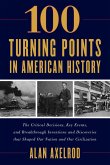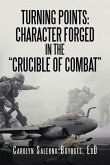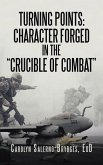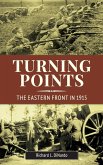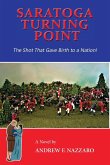This book, the third in a series on forgotten battles, challenges some of the most sacred myths taught in American schools. One is the concept that the US Constitution was conceived by idealists for the public good. New research, however, shows that most of the Founding Fathers were strongly motivated by their own financial self-interest and a desire to suppress highly democratic state legislatures that had provided relief to citizens facing taxes that were triple the rate charged under British rule. Turning Points also presents a fresh perspective on Indian tribes in Ohio and Indiana, who defeated two American armies sent to deny their claims to land that had been told was theirs forever. Modern archaeological research redefined the scope of a battle on the Ohio/Indiana line that represented the high water mark for Indian power in America. Another chapter upends the way the story of the Pacific air war has always been told. Douglas Smock focuses on the role of the aircraft engineers and the amazing, rapid conversion of a General Motors assembly plant in Newark, New Jersey, to a factory that produced twenty-four redesigned Wildcat naval fighters a day. Another narrative flips the typical Civil War storytelling on its head by looking at the experiences of one battery of one hundred Maine farm boys and laborers. A fifth chapter reexamines the myth of Teddy Roosevelt and the Spanish-American War. Each story represents a turning point in American history.




